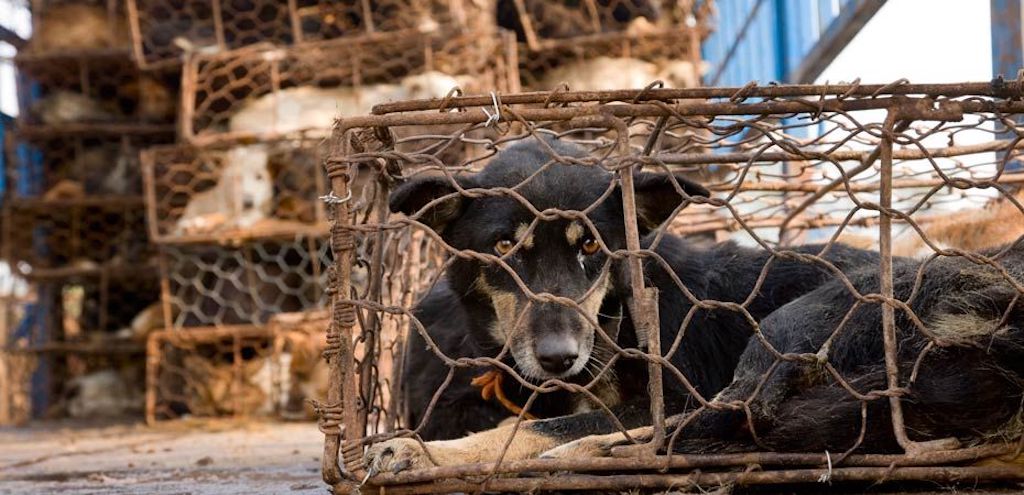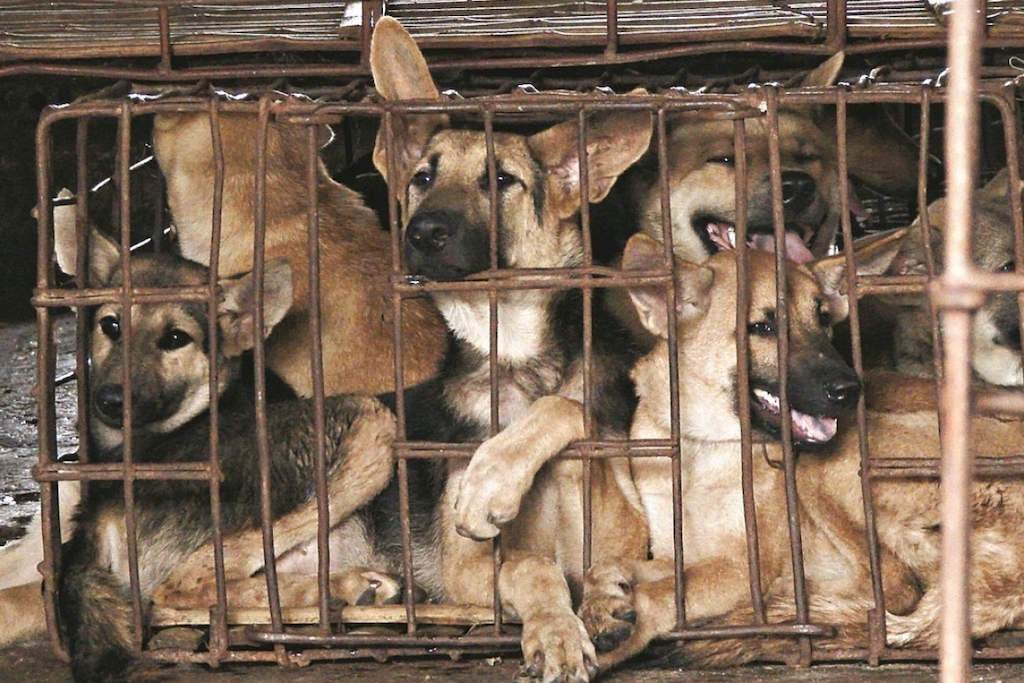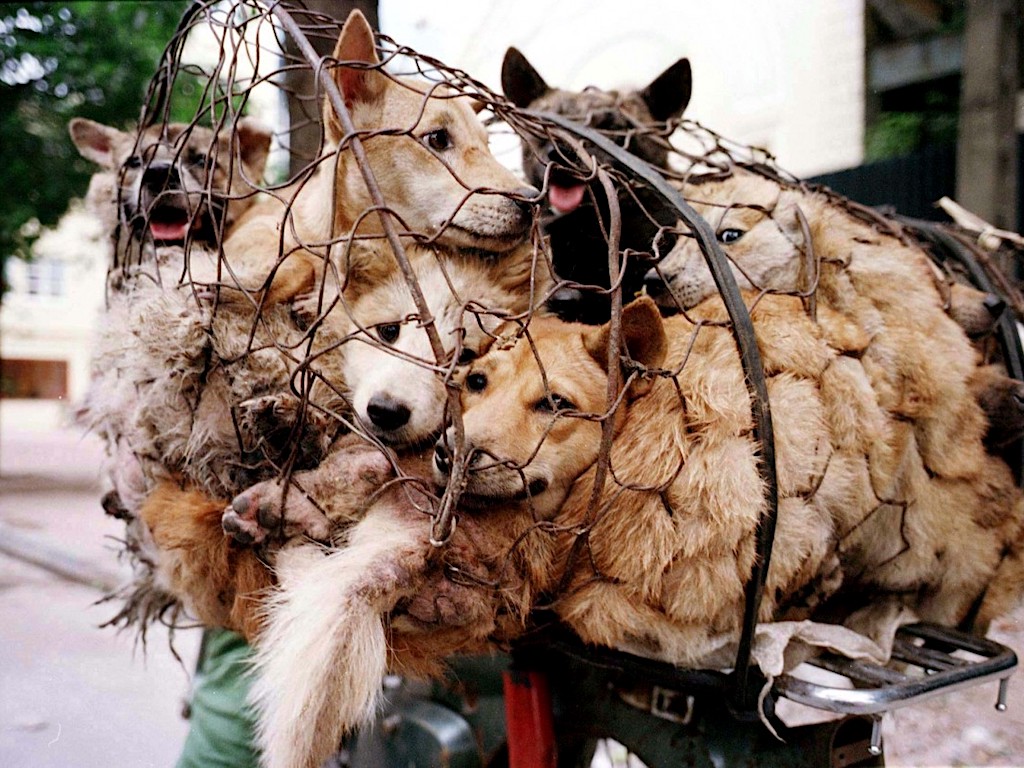4 Mins Read
China’s agricultural ministry has just removed dogs from the national list of livestock, and has reclassified dogs as pets. The new set of guidelines comes as part of the broader nationwide crackdown on the wildlife industry after the coronavirus pandemic. The move has been welcomed by conservationists who have long campaigned for greater protection of dogs, but some critics have pointed out that legal loopholes for eating dogs may still exist.
Dogs have been dropped from the updated National Catalogue of Livestock and Poultry Genetic Resources list, and have been reclassified as pets. The species listed in the directory fall under the jurisdiction of the Animal Husbandry Law, which means it is legal to raise them for food, wool or fur.
A notice on the ministry’s website said: “There’s a long history of domesticating dogs, in the past they were used for guarding houses, hunting and herding. Now they are raised as pets, for search and rescue, for aiding the blind and have a closer bond to humans.”
No longer included in the livestock list, the measure means that restrictions on the dog meat trade – the selling of and serving dogs as food – will come. Conservationists hope that this means that a crackdown on the controversial and cruel annual dog meat festival in Yulin city is on the way.

According to animal welfare organisation Humane Society International (HSI), 10 million dogs and 4 million cats are killed for meat in China.
Just weeks earlier, local authorities in the southern city of Shenzhen became the first city in the country to completely ban the consumption of dogs and cats. Zhuhai also banned the consumption of dog meat, but other cities have yet to take such a move.
For many conservationist groups who have been campaigning for change for years, the new regulations are a cause for celebration. Hong Kong-based animal welfare charity Animals Asia, for instance, have been running a Cat and Dog Welfare team on the ground for decades to encourage responsible dog management in China, working with local deputies and submitted investigations about the dangers and cruelty of the industry.
Jill Robinson, the founder and CEO of Animals Asia, told Green Queen that the organisation is “grateful to the authorities for coming to this groundbreaking decision that will now better protect consumer safety and save dogs and cats in the community from the terrible consequences of what has been a largely illegal trade.”
“It’s wonderful to see dogs recognised so positively by the administration in their description. Now, the use of dogs is more diverse, embodying the functions of pet companionship, police search and rescue, accompanying the blind and so on, and their relationship with humans is closer,” she continued
Robinson and her team have been campaigning for over twenty years, and have at various moments worked closely with the Chinese authorities to advance animal welfare laws: “Over the course of many years we have worked with a number of deputies to the National People’s Congress (NPC) on proposals relating to the protection of companion animals, such as the proposed legislation to ban the slaughter and sale of cats and dogs. We submitted four in-depth investigation reports to a number of national and local governments to help departments and officials understand the violations and dangers of the cat and dog meat industry chain. Our efforts were acknowledged by an official reply letter from the State Food and Drug Administration in 2017, which mentioned that they would protect consumers’ food safety by strengthening supervision and inspection of restaurants and other cat and dog meat sales across the country, collaborate with relevant departments to crack down on the illegal cat and dog meat practices, and increase publicity and guidance to the public, amongst other measures.”

While welcoming the move to crack down on restaurants, markets and slaughterhouses that sell dogs for food, conservationists have also pointed out that the reclassification does not explicitly ban the consumption of dogs or raising them for meat, which may put the trade in an unregulated grey area.
The new directory also added 16 new “special species” to the livestock list, including reindeer, alpacas, pheasants, ostriches and foxes. Critics point out that this appears to contradict the nationwide ban on the wildlife trade, and could present itself as yet another loophole to allow certain animals to remain freely traded for food, wool or fur.
Another contradictory policy that emerged over the past few months involved China’s approval of bear bile as a traditional Chinese treatment for coronavirus patients, which has no proven efficacy as a Covid-19 cure.
Experts have reiterated that without a full shutdown of the illicit wildlife trade as well as greater regulation over the wider animal livestock industry, public health dangers will continue to exist and may become deadlier over time.
Read our earlier news coverage of Covid-19 here & more news on animal rights here.
Lead image courtesy of World Dog Alliance.




